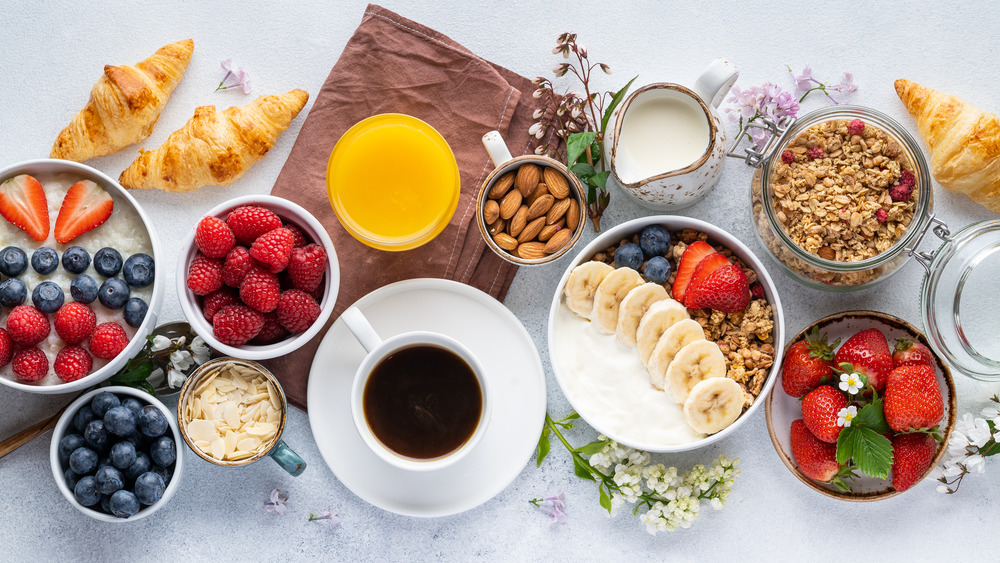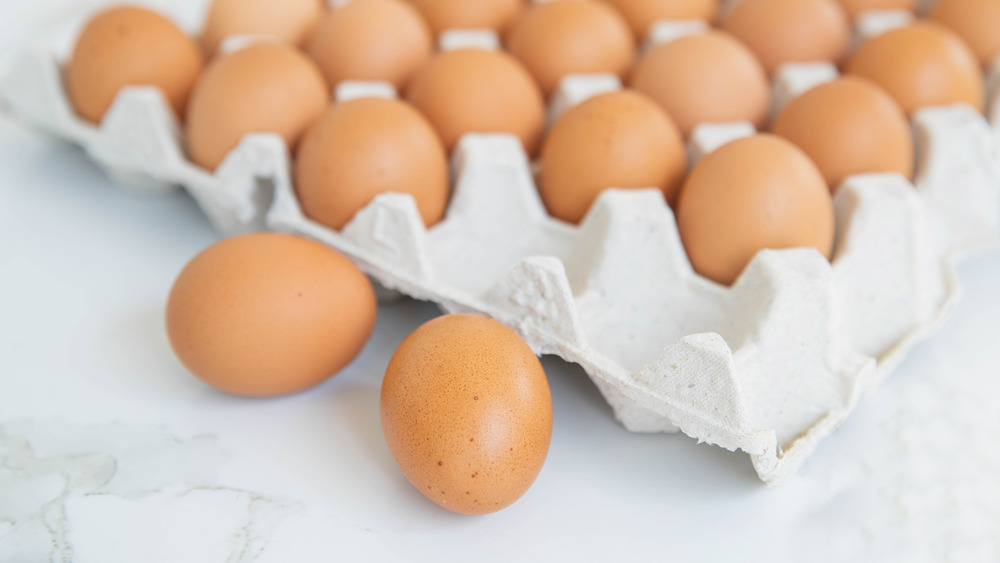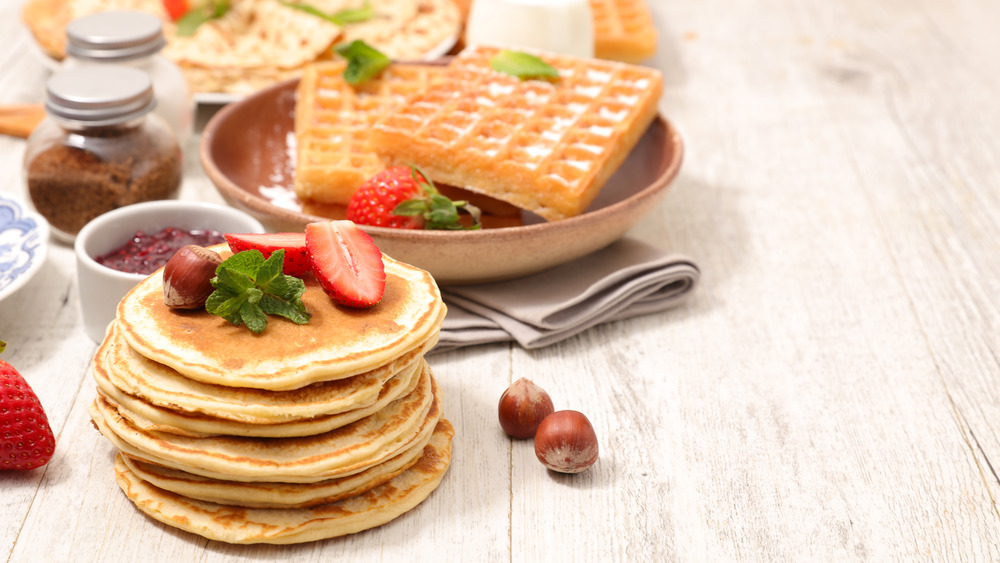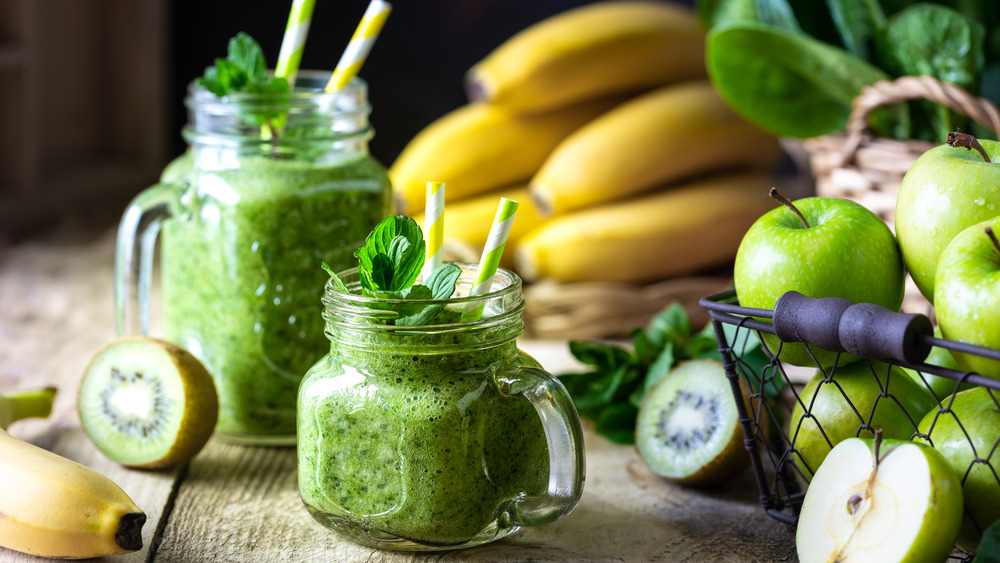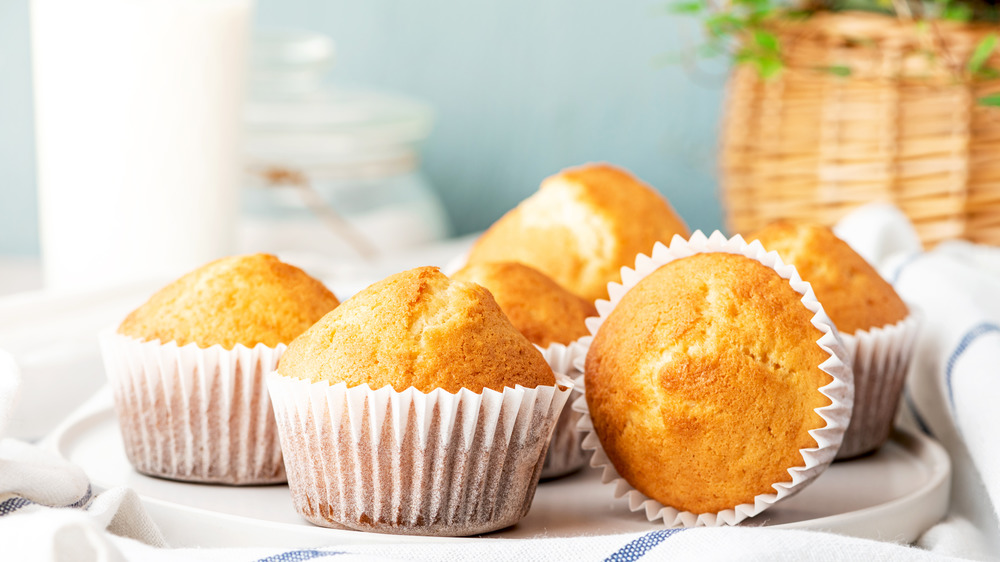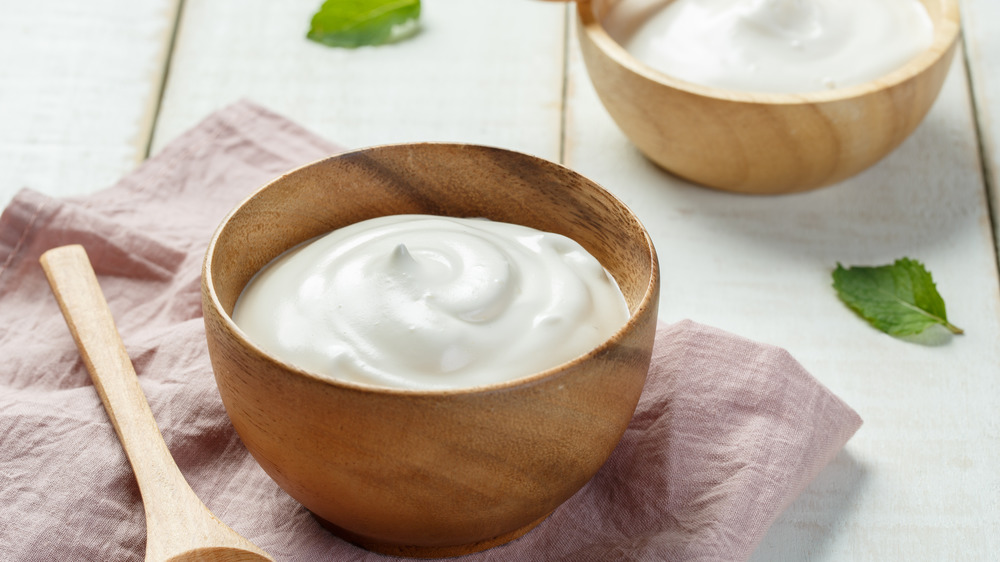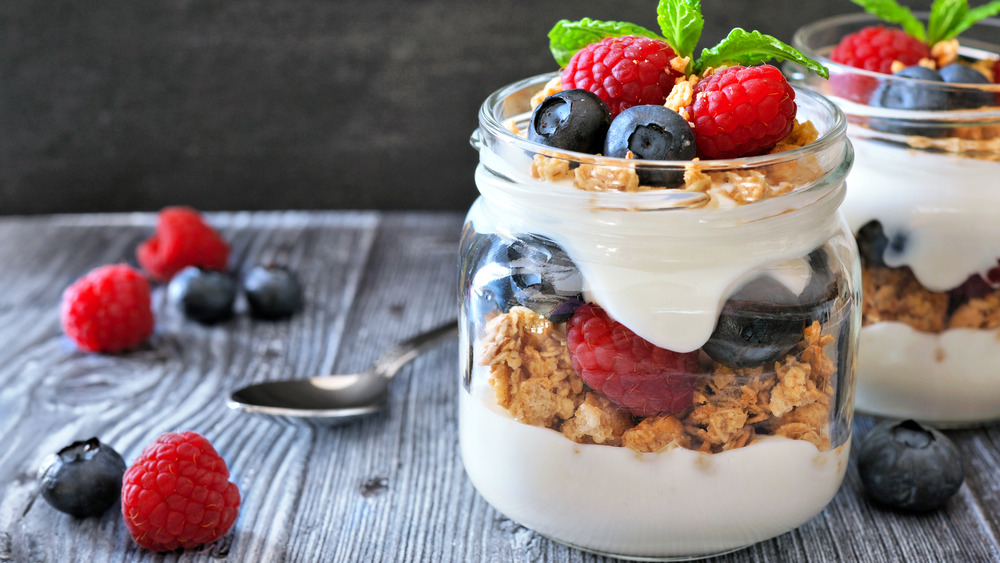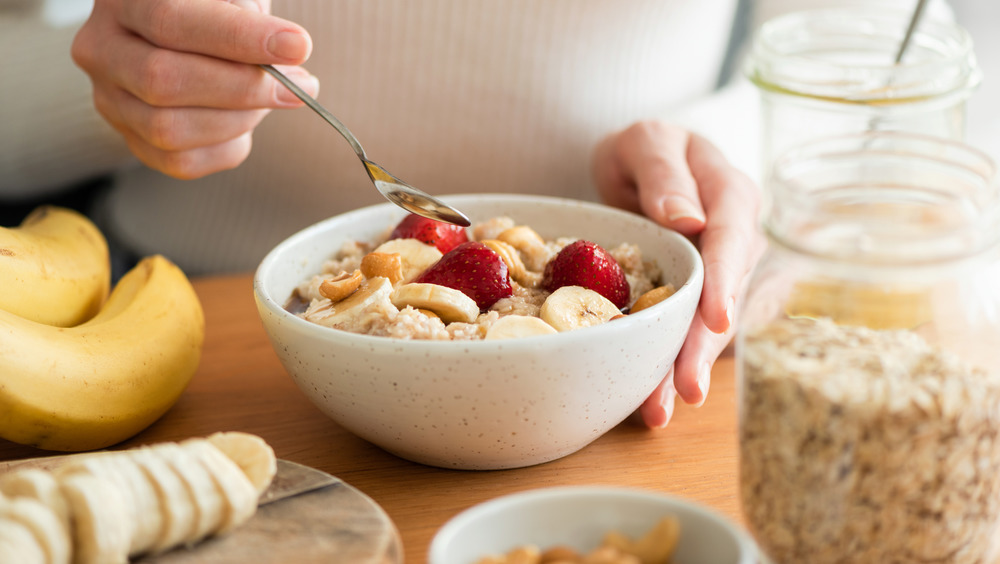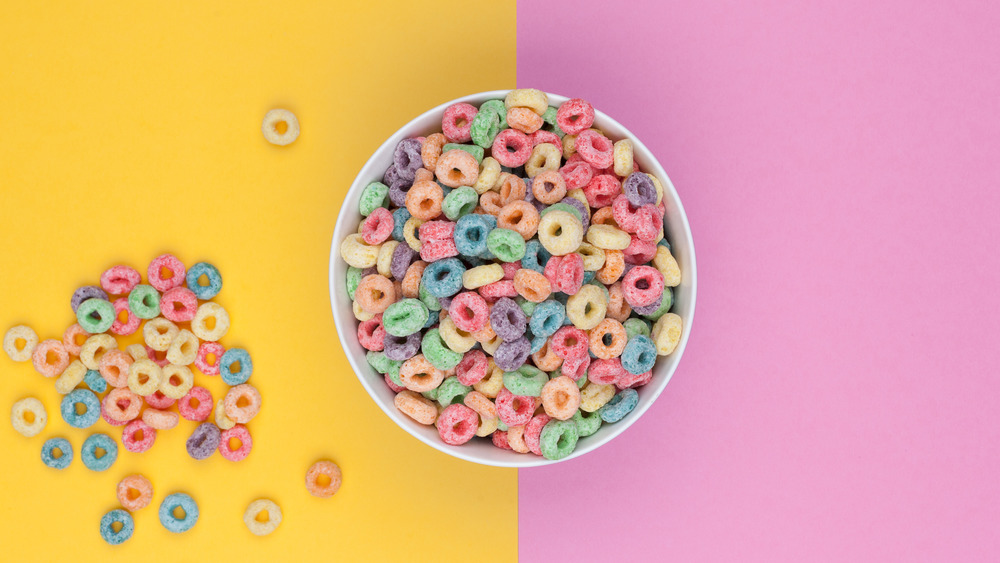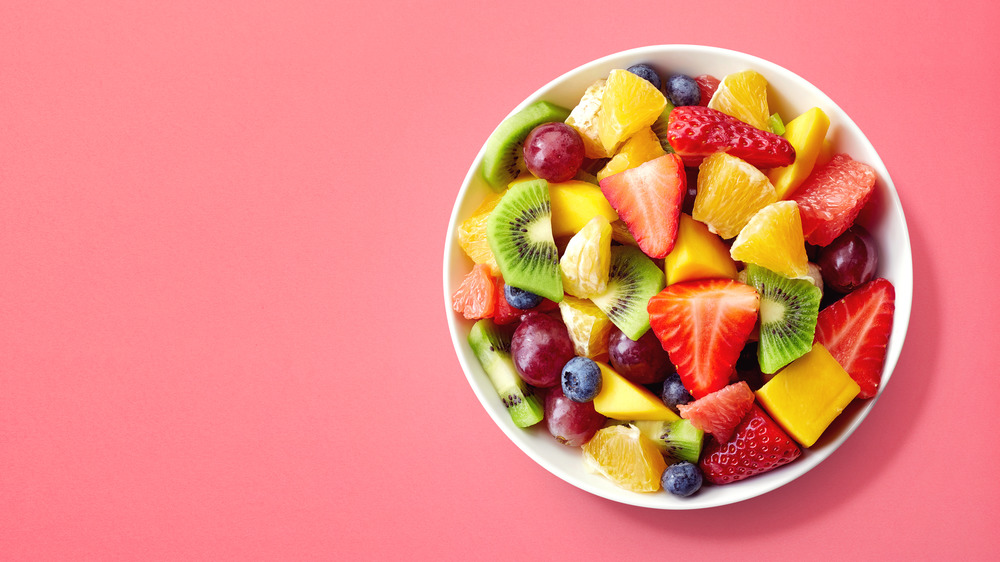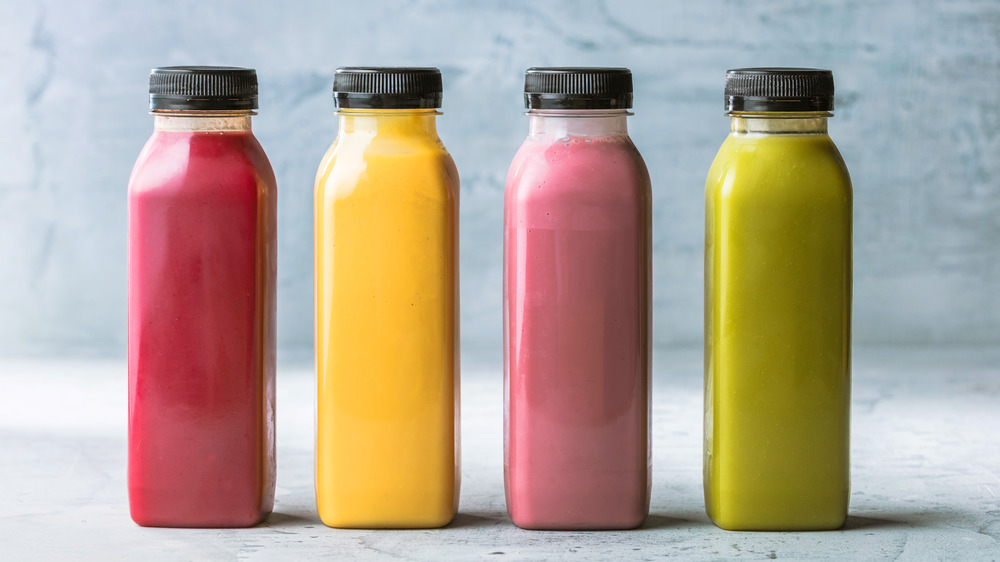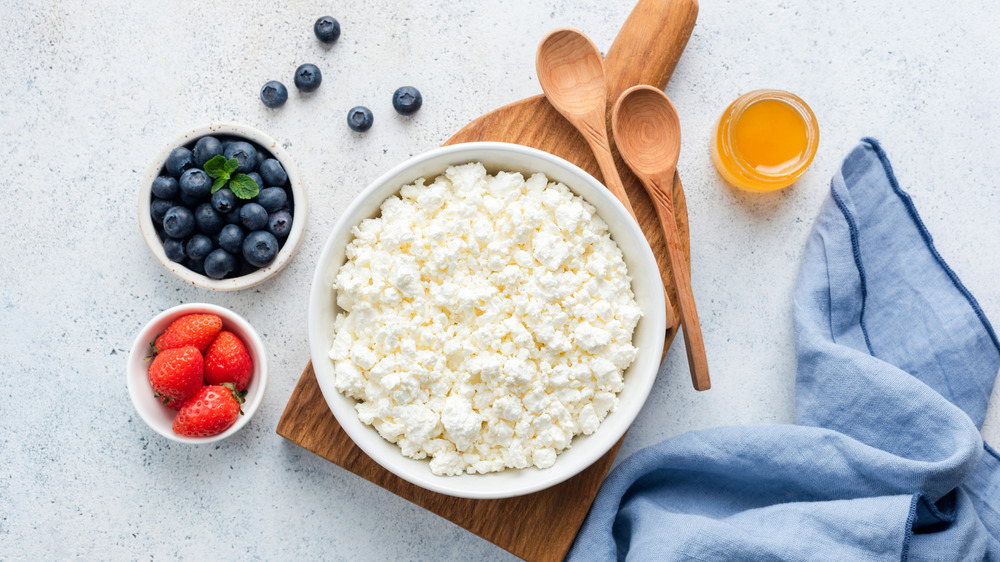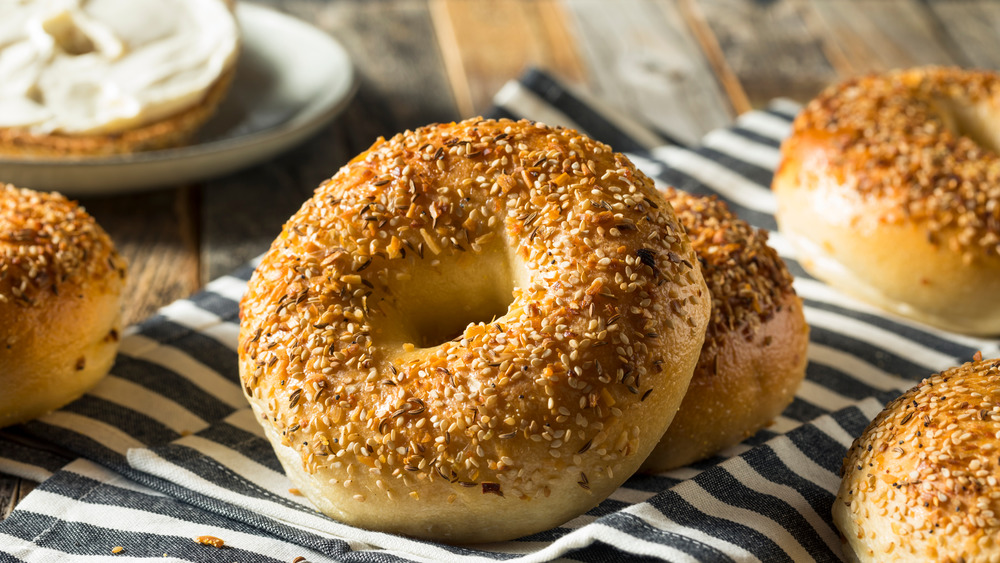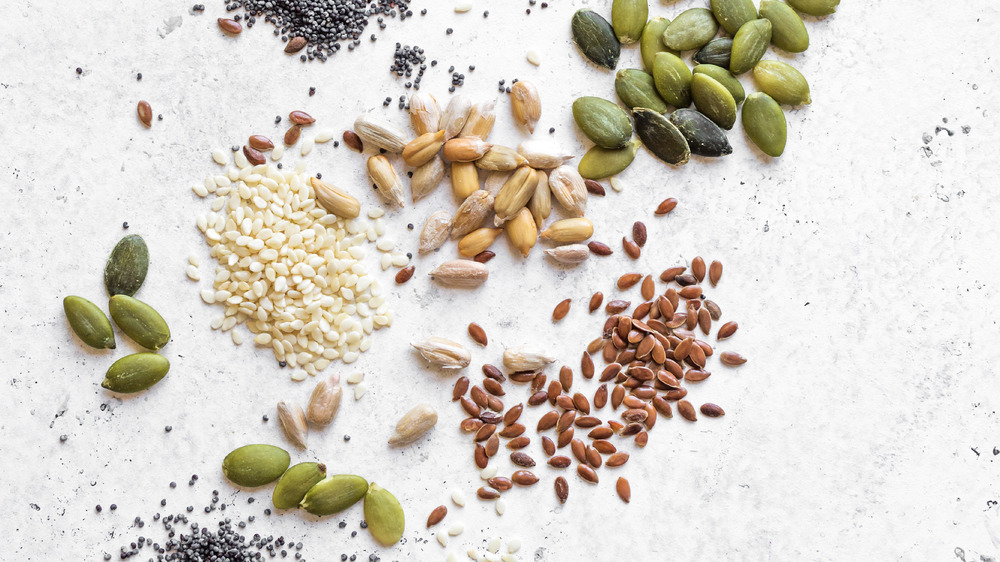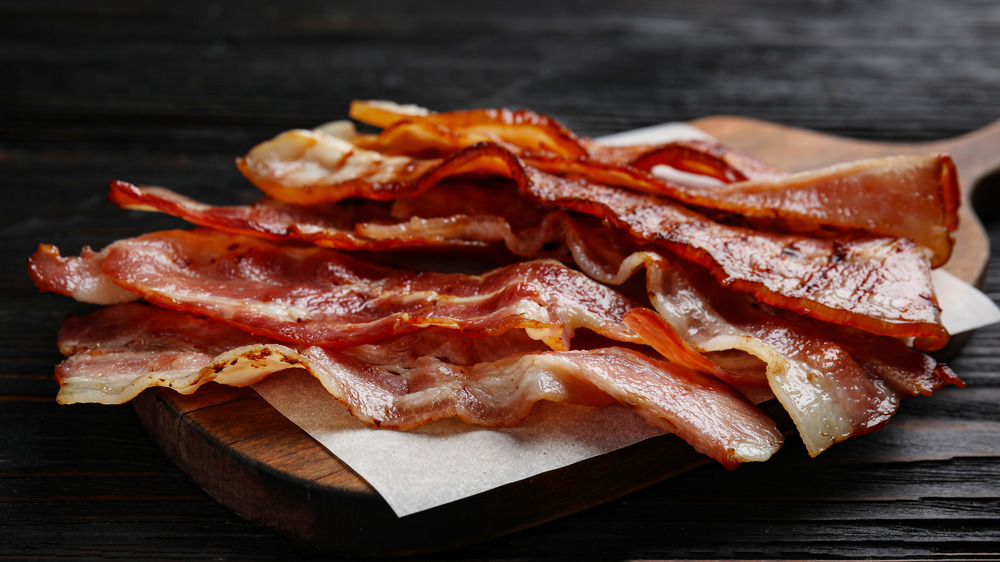7 Breakfast Foods You Should Eat And 7 To Avoid
Breakfast — it really is the most important meal of the day. It can set the tone for a full 24 hours of healthy decision making. Of course, it can also establish a pattern of not-so-smart dietary choices. What you eat for that morning meal will either fuel you for the tasks, challenges, and obstacles ahead, or leave you feeling, well, less than motivated. What's more, you are what you eat — and the longterm benefits and consequences of your daily diet can potentially help you out or, conversely, take a toll on your health.
You can choose to pack your plate with healthy, nutrient-rich options or you can fill a bowl with a heaping pile of sugar and fat. Yes, when it comes to your breakfast buffet, the options are plentiful — but they are far from equal. Want to start making better choices at the breakfast table? Read on for the best foods to eat — and the ones you should try to avoid.
Eat: Eggs
Eggs haven't always had the best reputation. Nevertheless, when eaten in moderation and prepared in a conscious way, they can be one of the healthiest diet choices you can make. As explained by Healthline, there are a few key reasons you will want to make sure that eggs are a part of your breakfast routine. First, they are loaded with nutrients while boasting a relatively low quantity of calories. They are also chock full of inflammation-fighting antioxidants and choline, a brain-boosting nutrient with tons of other fringe health benefits.
What's more, while eggs are high in dietary cholesterol, they actually can effectively regulate your blood's cholesterol. Finally, with substantial protein, eggs are a filling breakfast that will leave your tummy satisfied, potentially inhibiting unnecessary snacking. Of course, as noted by the health site, "omega-3 enriched or pastured eggs" tend to be better for you, so choose your eggs wisely.
Avoid: Pancakes and waffles
Drowning your pancakes in syrup, sprinkling your waffles with powdered sugar, or dipping your french toast sticks in honey are all delicious choices. None of them are particularly healthy though.
As registered dietitian Kerri-Ann Jennings explained in an article for Everyday Health, pancakes are usually prepared with white flour as their primary ingredient. There is very little fiber or protein in this carb-heavy breakfast choice, so it is neither nutritious nor filling — meaning you are likely to eat more in the hours following your morning feast. Furthermore, pouring syrup on your meal is just another way to douse your breakfast in calories and sugar.
Of course, if it is pancakes you crave, there are a few ways to up the health factor on your favorite flapjacks. Try making them with buckwheat or flaxseed meal for a fiber boost. Quinoa flour is another option that packs a punch of protein to help you kick start the day in a better way (via Everyday Health).
Eat: Nutrient-rich smoothies
You can put just about any healthy ingredient in a smoothie. From fruits and vegetables to soaked nuts and seeds to dairy or non-dairy milks and yogurts to protein powders — the options are seemingly endless.
As noted by Healthline, you can even sneak lots of antioxidant and nutrient-rich ingredients in your drink. Produce like beets, bananas, kale, strawberries, and zucchini offer lots of fiber and vitamins, and some add natural sweetness. Plus, a smoothie prepared with protein-rich ingredients — "unsweetened nut butter, chia, hemp or flax seeds" — makes for a filling breakfast that can deter later snacking, according to Time.
Of course, on the flip side, smoothies made with sugar-heavy ingredients can be high in calories. Worse yet can be pre-made smoothies or bottled protein drinks. Registered dietitian Miranda Hammer told Time, "With store-bought smoothies, you lose total control over quality and quantity of the ingredients used." You could be consuming lots of sugar, additives, and other extras that diminish the health benefits.
Avoid: Muffins and pastries
Ah, muffins — they are the veritable dessert of breakfast. In fact, they are more like a cupcake (just without the frosting) than a healthy, nutrient-packed morning meal. Likewise, donuts, turnovers, and those chocolate-filled croissants you find at your favorite coffee shop are anything but a balanced choice. Registered dietitian Jean LaMantia told Best Health, "Not only are these pastries made with refined white flour, but there's sugar added." She continued, saying, that consuming sugar "results in a rapid rise in blood sugar."
As noted by The Nutrition Source, a Harvard publication, a blueberry muffin can have about 470 calories — and just 2 percent or less of its carb content is from beneficial fiber. Fortunately, there are a few tricks to bake a better-for-you batch of muffins.
First things first: Lighten up the added sugar load. In its place, add more fresh berries to a recipe. Bakery owner and cookbook author Joanna Change told The New York Times, "With fruit as a sweetener, your mouth doesn't miss the sugar as much." She also suggests using whole grains in addition to all-purpose flour, replacing processed oils with more natural ones, and adding extra nuts to add heartiness and nutrients.
Eat: Greek yogurt
Picking a yogurt is no easy feat. As Shari Steinbach, registered dietitian nutritionist and president of a nutrition communications consulting firm in Michigan, told Today's Dietitian, "When I worked in retail, our supermarket had 500 different varieties of yogurt in the case!" Nevertheless, you may want to consider sticking with Greek yogurt over traditional yogurt, as registered dietitian nutritionist Rahaf Al Bochi told the publication.
Greek yogurt — that is, yogurt that has been rid of the whey present in other types of yogurts — is chock full of calcium, protein, and other health-boosting vitamins and nutrients, as explained by Medical News Today. Eating Greek yogurt regularly can enhance bone health, improve your metabolism, foster the production of muscle mass, lower the risk of type 2 diabetes, and reduce blood pressure. It is a solid breakfast that can leave you feeling satiated and fuel you throughout the morning without the want or need for additional snacking.
Furthermore, the probiotics — or good bacteria — in Greek yogurt can improve gut health. Convincing research has found a strong connection between gut health and mental health — so eating Greek yogurt could be good for your body and your mind. Top it with some fruit for some additional vitamins and antioxidants (via Medical News Today).
Avoid: Sweetened yogurt parfaits topped with granola
Low in sugar and high in protein, Greek yogurt may be extremely healthy, but its whey-containing cousins can be far less beneficial. Registered dietitian Jessica Bennett told Healthline, "Many yogurts are high in sugar and sometimes disguised as a health food but equating more to a dessert, especially those with 'added fruit' or toppings." Indeed, those options that have added sweetness pack a whole lot of calories in one very small container. As such, make sure to read the nutrition label before purchasing yogurt.
You should also avoid those fancy yogurt parfaits at your favorite to-go eatery, as they are akin to ice cream sundaes. The fruit and dairy look deceiving, but those layers of cookie-like granola are an unhealthy choice. Registered dietitian Cassie Bjork told The New York Times that the mere thought of granola conjures up images "of piles of sugar." She elaborated, saying, "It's advertised as a healthy choice. But the reality is that it's usually not." By the standards of most nutritional experts, granola should be considered a dessert — especially when it's the added crunch to an already sugar-filled yogurt.
Eat: Oatmeal
Oatmeal is a powerhouse breakfast loaded with filling soluble fiber and it offers a truly impressive roster of health benefits. As explained by WebMD, eating oats on a regular basis can lower your LDL (aka "bad") cholesterol. What's more, oats can lower your blood sugar, promote gut health, keep your bowel movements regular, and potentially even help to diminish your risk of colon cancer.
Per Healthline, oatmeal boasts lots of vitamins and inflammation-fighting antioxidants on its own, but adding berries, seeds, nuts, spices, or dairy can infuse flavor and boost the nutritional value in your hearty breakfast bowl. And by the way, as an added benefit for those of you who have dry, itchy skin, the avenanthramides — a "unique group of antioxidants" — in oatmeal can help reduce your discomfort, the health site revealed. Interestingly, avenanthramides can also "help lower blood pressure levels by increasing the production of nitric oxide."
Avoid: Breakfast cereal
There is nothing quite as convenient as waking up in the morning and pouring yourself a bowl of breakfast cereal. Pour on the milk, and breakfast is officially served — easy, breezy, right? While cereal might be a timesaver, it is often not particularly healthy.
For starters, as noted by Healthline, the grains in cereal are highly processed and combined with other less than beneficial ingredients. In fact, sugar is often the second or third listed ingredient in cereal! And let's be clear, an early morning blood sugar spike will not help you sustain energy throughout the day.
Of course, sometimes simplicity wins over nutrition. And there are a few ways to keep cereal in your breakfast rotation. Per Healthline, try to find a cereal with 5 or fewer grams of sugar in a serving, and opt for one with a hearty amount of fiber to boot. If it has protein, that's even better. And as much as possible, avoid extra ingredients such as artificial colors or preservatives (via Eat This, Not That).
Eat: Fruit
Eat the rainbow for breakfast; a wide assortment of fruit offers an equally vast assortment of benefits. As noted by Healthline, cherries, blueberries, and pineapple have inflammation-fighting antioxidants. Bananas, apples, and avocados are nutrient dense and provide lots of energy, while grapefruit, kiwis, and strawberries are loaded with immunity-boosting Vitamin C.
Furthermore, many fruits are full of fiber, which can help to regulate digestion and lower blood pressure (via San Francisco Chronicle). While you are at it, do not forget about vegetables. They, too, can be a nutritious part of your breakfast plate. As suggested by Prevention, throw them into your a.m. smoothie, add a handful of greens into your egg scramble, shred some zucchini into your morning pancakes, eat a spinach salad in the morning, or just go to town on some sautéed leftovers. Wrap your brain around the idea that it does not have to look like a traditional breakfast to be a healthy dietary option for a morning meal. Whatever tastes good and fuels your body works well.
Avoid: Fruit juices
While whole fruits are incredibly rich in vitamins and nutrients, deciphering the healthfulness of juices can be a little bit trickier. As they lack the fiber that comes from their original sources, bottled juices tend to be less satisfying and filling despite their high calorie count. They are also loaded with sugar — as many as found in a typical soda, thus making them a potential source for weight gain, a 2019 study in Nutrients found. Of course, that doesn't mean that you should swap out your orange juice for a soda at breakfast.
If you can't go without your favorite fruit drink, opt for ones that explicitly reveal that they have no added sugar. If a juice has a sell-by date, it means that it is probably at least somewhat processed. So do your label reading and due diligence, as advised by Verywell Fit. Better yet, get a juicer and make your own freshly squeezed drinks. Or, of course, you could opt to eat them whole.
Eat: Cottage cheese
Cottage cheese is probably not quite the breakfast of your dreams, but there is a strong case to be made for consuming those creamy curdles as part of your morning meal. Loaded with nutrients, cottage cheese packs a protein punch that can fuel your body, keep your belly feeling full, and help foster muscle growth, as noted by Mind Body Green. It also contains active cultures that can improve gut health, and ultimately support your immune system and overall well-being.
Cottage cheese has a reputation as being a "diet food," as registered dietitian Cara Harbstreet noted when speaking with the publication. She explained, however, that it "shouldn't be positioned as a tool for weight loss; instead, it should be considered a nourishing and filling option for those who enjoy it." Serve it with fresh fruit or try adding it to your smoothie. "It helps thicken the smoothie as well as boost the protein content and creates a smooth and creamy texture," explained Harbstreet.
Avoid: Bagels
A bagel with the works — delicious, yes, but not nutritious. Unfortunately, this bready breakfast is full of empty calories. As noted by Health, a typical plain bagel can have upwards of 350 calories and 60 carbs. And without the benefits of fiber, these simple carbs are rapidly turned into sugar or fat. And then there's the issue of toppings. Adding a dab (or two or three) of butter or cream cheese is going to increase the amount of empty calories in this breakfast.
If you just can't give up the occasional bagel with a smear, there are a few ways to make it a little bit less of a guilty indulgence. As suggested by Health, swap out a big bagel for one of the mini varieties — instant portion control. You could also opt for a whole grain bagel, as it will offer more vitamins and minerals. You can also scoop out the soft middle section to get rid of some of those excessive carbs. And lastly, choose your bagel extras wisely, and try not to spread on too much. Eggs, peanut butter, and hummus are smart alternatives to cream cheese and butter.
Eat: Nuts and seeds
As you plan your morning meals, there are a few extras to consider adding to your Greek yogurt, oatmeal, eggs, or fruit plates. Sprinkle on some nuts and seeds. Yes, they are indeed often high in calories and fat — but these texture-providing goodies are loaded with omega-3 fatty acids that can help to lower your chances of getting heart disease and other serious conditions (via Health Grades). Adding 1 to 2 ounces to your daily diet is advisable.
So which nuts and seeds should you be sure to add to the rotation? You've got plenty of healthy options. Walnuts can help you strike a balance between your good and bad cholesterols, while pecans can help regulate your blood sugar, foster healthy bones, and boost the production of collagen. Flaxseeds boast a high quantity of heart-healthy omega 3 fatty acids while also providing a hefty dose of fiber. Similarly, the fibrous content of chia seeds can help you feel more satiated and regulate your digestion (via Health Grades).
Avoid: Bacon, sausage, and other processed meats
Nothing rounds out a salty or sweet breakfast like a slice of fried bacon, sausage, or ham. Although these processed morning meats are a savory addition to your breakfast plate, they're certainly not the healthiest.
First of all, bacon is incredibly high in sodium. And as registered dietitian Lisa Cimperman explained to Time, diets high in sodium can lead to an increased risk of high blood pressure, stroke, and heart disease. Of equal cause for concern? The nitrates in bacon and other processed meats. As explained by Healthline, when cooked, these added preservatives can crate carcinogenic compounds that have consequences for your health.
An alarming analysis of multiple studies, which was published in Cancer, Epidemiology, Biomarkers and Prevention, found that regularly eating processed meat may raise one's risk for colorectal cancer. As suggested by Healthline, try finding a nitrate-free bacon if you can't imagine a morning without a snappy, salty bite or two.

